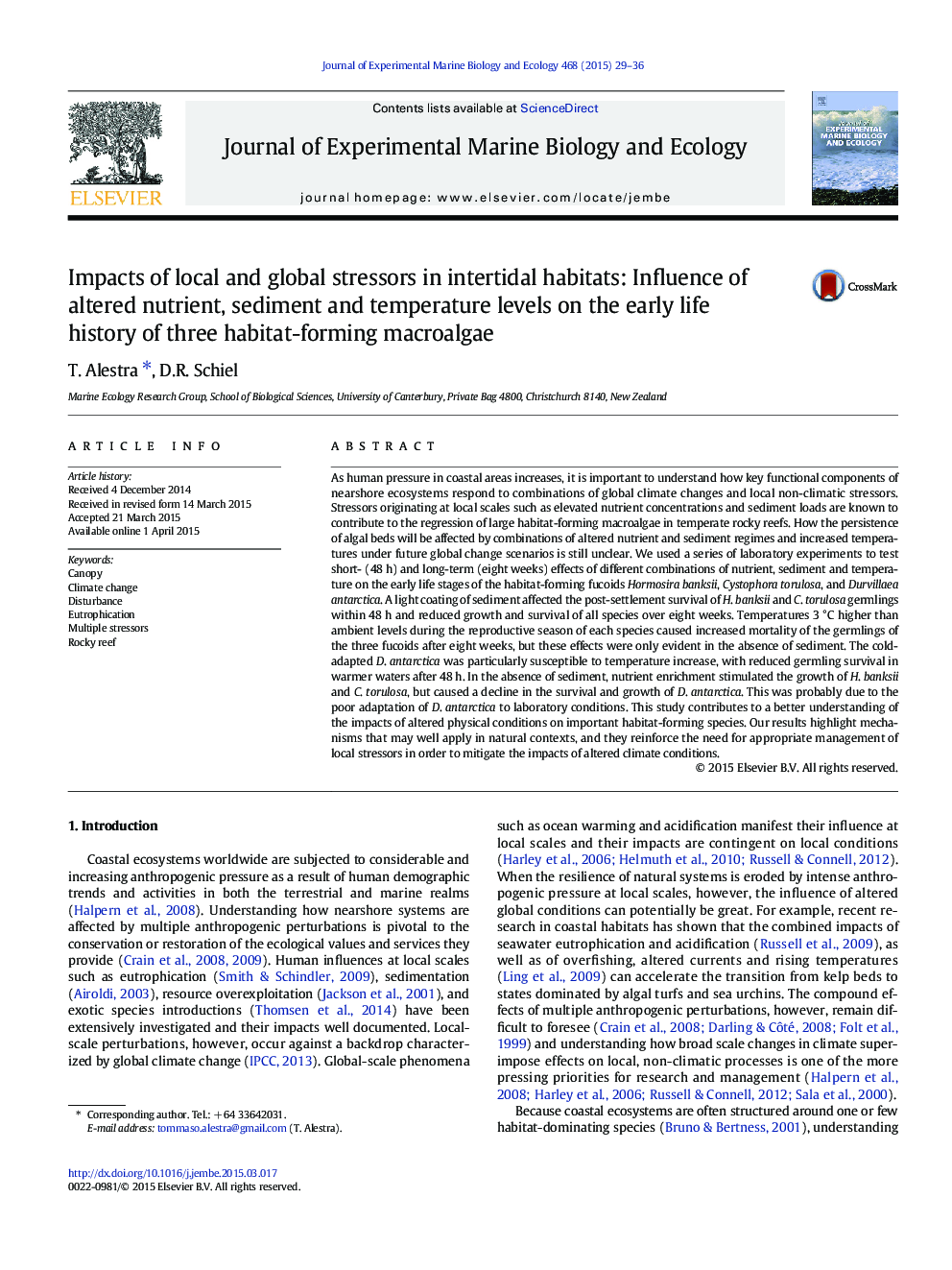| کد مقاله | کد نشریه | سال انتشار | مقاله انگلیسی | نسخه تمام متن |
|---|---|---|---|---|
| 4395397 | 1618407 | 2015 | 8 صفحه PDF | دانلود رایگان |
• We exposed fucoid early life stages to altered nutrient, sediment and temperature levels.
• Post-settlement survival was reduced by a light coating of sediment.
• Post-settlement survival declined in waters 3 °C warmer than ambient temperature.
• Responses to nutrient enrichment differed among the study species.
• These results highlight the impacts of stressors originating at local and global scales.
As human pressure in coastal areas increases, it is important to understand how key functional components of nearshore ecosystems respond to combinations of global climate changes and local non-climatic stressors. Stressors originating at local scales such as elevated nutrient concentrations and sediment loads are known to contribute to the regression of large habitat-forming macroalgae in temperate rocky reefs. How the persistence of algal beds will be affected by combinations of altered nutrient and sediment regimes and increased temperatures under future global change scenarios is still unclear. We used a series of laboratory experiments to test short- (48 h) and long-term (eight weeks) effects of different combinations of nutrient, sediment and temperature on the early life stages of the habitat-forming fucoids Hormosira banksii, Cystophora torulosa, and Durvillaea antarctica. A light coating of sediment affected the post-settlement survival of H. banksii and C. torulosa germlings within 48 h and reduced growth and survival of all species over eight weeks. Temperatures 3 °C higher than ambient levels during the reproductive season of each species caused increased mortality of the germlings of the three fucoids after eight weeks, but these effects were only evident in the absence of sediment. The cold-adapted D. antarctica was particularly susceptible to temperature increase, with reduced germling survival in warmer waters after 48 h. In the absence of sediment, nutrient enrichment stimulated the growth of H. banksii and C. torulosa, but caused a decline in the survival and growth of D. antarctica. This was probably due to the poor adaptation of D. antarctica to laboratory conditions. This study contributes to a better understanding of the impacts of altered physical conditions on important habitat-forming species. Our results highlight mechanisms that may well apply in natural contexts, and they reinforce the need for appropriate management of local stressors in order to mitigate the impacts of altered climate conditions.
Journal: Journal of Experimental Marine Biology and Ecology - Volume 468, July 2015, Pages 29–36
